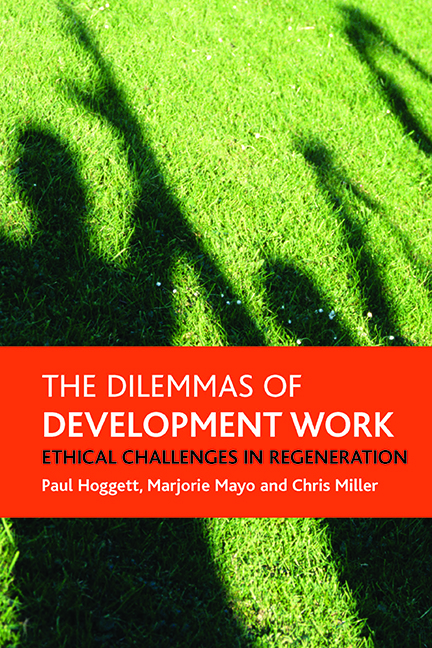one - Introduction
Published online by Cambridge University Press: 21 January 2022
Summary
Changing nature of development work
Development work, broadly defined, has traditionally included a range of activities designed to strengthen the capacity of local groups and communities to identify and give effective voice to their needs, to draw in resources from public and private sources and to effect changes in the policies and strategies of government at local, regional and even national levels. Development work has focused on disadvantaged communities in both rural and urban areas and, as we demonstrate in more detail in Chapter Three, although its origins lay in work with the urban poor of industrialising nations at the beginning of the 20th century, it has since become a major intervention strategy in developing countries.
Typically in current usage, the term ‘development’ implies development in this latter sense, international development in the global South. In this book, however, we use the term more generically, exploring a range of policies and strategies to promote social change, with a particular focus on disadvantaged areas and communities, recognising that these are to be identified within as well as between national contexts, North and South. In parallel, throughout the book we refer to ‘development professionals’. We use this in a similarly generic way to refer to all those workers, professionally qualified or not, who have social, community or neighbourhood development contained within their job descriptions or their remits as community representatives in structures of governance. In Britain – unlike the global South – there are very few workers who have the specific job title of ‘development worker’ (although there may be different patterns in other countries of the global North). The nearest to this job title in Britain would be that of ‘community development worker’, and community development workers feature in this book. But subsequent discussions are not confined to the roles, challenges and dilemmas of community development workers per se. In recent years, a growing number of professionals have been tasked with engaging with service users and with communities more broadly. From police officers to housing workers to healthcare professionals, teachers and planners, professionals are expected to spend various amounts of their time engaged in long-term development work, in this broad sense of the term.
- Type
- Chapter
- Information
- The Dilemmas of Development WorkEthical Challenges in Regeneration, pp. 1 - 12Publisher: Bristol University PressPrint publication year: 2008

